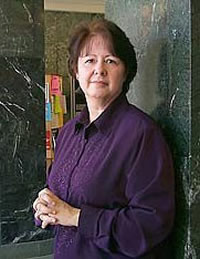Flappers meet cowboys and a host of other troubles in Asheville Lyric Opera’s refreshing adaptation of Mozart’s classic opera by Stage Director Pat Heuermann. Conductor Michael Porter, Director of Choral Activities at Boise State University, kept the small pit orchestra smartly hopping with Corine Brouwer, concertmaster, and some fine playing from the winds. The production’s beautiful look was due to Scenic Designer and Artist Julie K. Ross and Costume Designer Jayne Harnett-Hargove, with Hair and Makeup by Tricia Zinke. The opera was sung in Italian with projected titles in English. Production sponsors were the Grand Bohemian Hotel and Village Antiques at Biltmore.
Ms. Heuermann’s extensive experience in opera and musical theater was evident in this lively production. She is a graduate of the Curtis Institute of Music and has taught at NYU, Emory University and Clark College, and has directed opera workshops for the Manhattan School of Music and the 92nd Street Y, among other posts here and abroad. More recently she was the Artistic Director of Hofstra University Opera Theater. She resides in Asheville and teaches at the North Carolina Center for Creative Retirement (NCCCR).
Heuermann’s production establishes common ground with the opera’s original setting in Naples, Italy of the late 1700s and the same city of the roaring twenties. The common ground — anything goes — is the central conceit around which the characters hash out ultimately what it means to be human. And, this unfolds in a libretto populated by only three pairs of characters.
The two sisters Fiordiligi (Sarah Beckham) and Dorabella (Regina Davis) are sweethearts of naval officers Guglielmo (Brent Davis) and Ferrando (Scott Joiner), respectively. Don Alfonso (Dominic Aquilino) challenges the men to test the fidelity of their girls, aided and abetted by Despina (Kristen Hedberg), the sisters’ wily chambermaid. The guys take the bait, and the game is on.
The men agree to announce their departure for duty at sea, only to return disguised not as Mozart’s exotic “Albanians” but as cowboys from Wyoming who set to work seducing the other sister. This gives rise to some of the production’s broadest comedy — the get ups (those moustaches and chaps!), the swaggers, the clownish pratfalls and fake poisonings when they are at first rejected — and the evening’s biggest laughs. A careful eye to the adapted libretto reveals some references to the Vanderbilts, period power brokers and builders of Biltmore, America’s largest private home in Asheville.
While the cast was evenly balanced and musically secure, Davis and Beckham deserve special commendation for their musicality and dramatic embodiment of each role, especially in Act II where each sings of the torture and rapture that is love. Hedberg was consistently funny in her various disguises while singing in her signature polished manner. The recitatives sung by all, both arioso and secco and supported by harpsichordist Virginia McKnight, have come a long way and now sound effortless, much like natural speech. This is no small feat for American singers, as the recitatives carry much of the opera. Finally, the pace of the action was spot-on with ensembles beautifully blocked and engagingly rendered, an essential ingredient of the production’s success.











